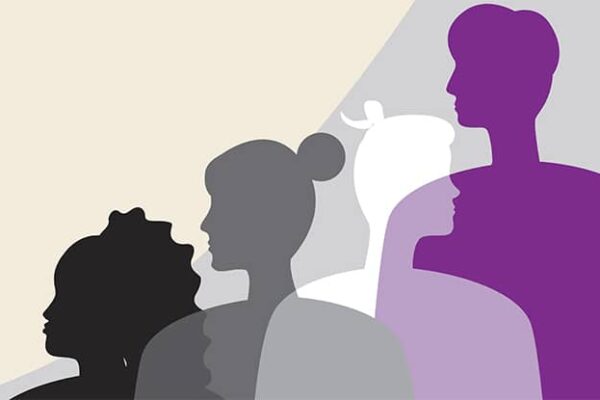Dyspareunia is not just random discomfort, but persistent pain during or after sexual intercourse, which can have physiological or psychological causes. It occurs in people of all ages and genders, but most often affects women. The pain ranges from mild burning to sharp, unbearable pain, and in any case, it affects not only physical condition […]
Asexuality: Is There a Place for Love Without Sex?
Asexuality is a sexual orientation characterized by the absence of sexual attraction to others. It is part of the broad spectrum of human identities, and while it is becoming more widely discussed, it remains misunderstood or even doubted by many.
Role-playing as a way to a deeper understanding of your partner
Role-playing in relationships is a way of interaction between partners that involves transforming into different personas or following specific scenarios. It can include the use of costumes, props, or even creating entire stories, allowing partners to go beyond their usual behavior.
Agender: What the Science Says About Gender Neutrality
The term “agender” originates from the English word “agender,” which literally means “without gender.” It is used to describe individuals who do not identify with any of the traditional gender categories—male or female. Agenderness can manifest as an absence of an internal sense of belonging to any gender or as a refusal to associate oneself […]
Pansexuality: What is It and How does It Change the Idea of Love?
Pansexuality is a sexual orientation where a person can feel romantic or sexual attraction to individuals of any gender or sex. A distinctive feature of pansexuality is that it is not tied to the biological sex or gender identity of a partner. For pansexual individuals, the most important aspect is the person’s character and inner […]
Bisexuality Through the Prism of Psychology and Society
Bisexuality is a sexual orientation characterized by romantic or sexual attraction to individuals of more than one gender. In modern psychology, this term is often viewed as part of the sexual orientation spectrum, acknowledging the diversity of human sexuality. Bisexuality does not necessarily imply an equal attraction to all genders; its expression can be unique […]
Masculinity and Sexuality: What has Changed in the 21st Century?
In the 21st century, the topics of masculinity and sexuality have garnered significant attention due to shifts in societal worldviews, the development of a culture of equality, and the growing influence of media. Traditional notions of masculinity as a set of specific traits—such as physical strength, emotional restraint, and dominance—are gradually transforming. Today, men face […]
Genderqueer and Psychology: How to Embrace Your Identity
Genderqueer is a term used to describe people whose gender identity does not conform to traditional categories of “male” or “female.” This may include individuals who identify as both male and female, those who exist beyond these categories, or those who reject gender definitions altogether. Genderqueer identity is often part of a broader spectrum of […]
Nymphomania: Myths, Reality and Stereotypes
Nymphomania is a term used to denote a pathologically heightened sexual drive in women. Its origin is linked to ancient Greek myths about nymphs—nature goddesses who embodied passion and sensuality. Scientifically, this phenomenon falls under the category of psychosexual disorders, which can be associated with both psychological and physiological factors. In medical terminology, this condition […]
Non-Binary Identity: a Psychological Perspective on Freedom from Stereotypes
In recent years, the concept of a non-binary identity has become more common, but for many people, it remains new and confusing. A non-binary person is someone whose gender self-perception is not confined to “male” or “female” boundaries and can encompass a wide spectrum. Non-binary people do not strictly identify with either the male or […]
Mind and Body: Why Vaginismus Requires Psychological Understanding
In today’s world, we increasingly recognize the inseparable connection between our psyche and body. This unity is particularly evident in cases where psychological factors affect physical health and vice versa. One vivid example of this interconnection is vaginismus—a condition that requires not only medical but also profound psychological understanding.
Homophobia: Causes, Manifestations and Ways to Overcome It
Homophobia is a complex and multifaceted phenomenon that continues to have a significant impact on societies worldwide. The term describes an irrational fear, dislike, or discrimination against people of homosexual orientation. Despite progress in LGBT+ rights over recent decades, homophobia remains a serious issue that affects the lives of millions.
What is Frotteurism: Social and Psychological Aspects of the Problem
Frotteurism is a less commonly discussed but fairly widespread phenomenon that is considered a form of sexual disorder. People may encounter it in public places like subways, buses, or shopping centers, often unaware that they are its victims. Frotteurism invades personal boundaries and causes psychological discomfort, frequently leading to distressing and traumatic consequences.
Exhibitionism: When the Desire to be Seen Becomes Obsessive
Exhibitionism – a phenomenon that raises many questions and debates in society. This is a complex topic that touches upon psychological, social, and legal aspects of human behavior. In this article, I will explore exhibitionism from various perspectives, so that you can better understand this phenomenon and its impact on society.
Gerontophilia: Historical Examples and Modern Realities
Gerontophilia is a sexual attraction to elderly people, a unique and underexplored phenomenon in sexology and sexual psychology. Unlike other sexual preferences, such as pedophilia (attraction to children) or ephebophilia (attraction to adolescents), gerontophilia is directed toward older individuals.














